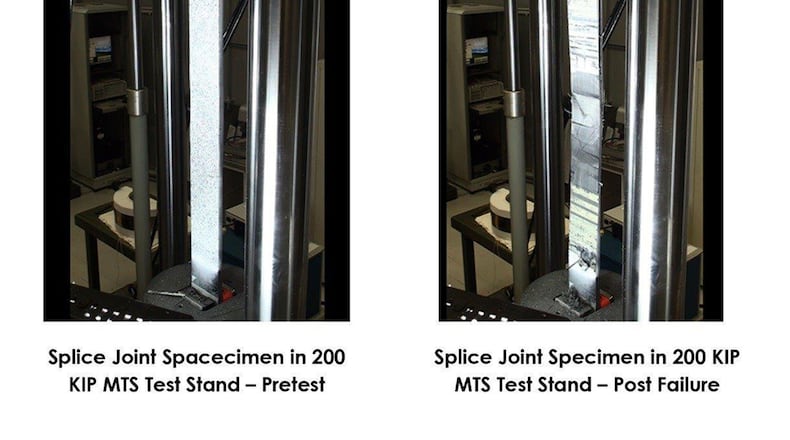Legacy aircraft assembly methods require joining large components and subassemblies using bolt-fastening joint methods. The bolted joints contribute to additional weight, part counts, and airframe costs. The aerospace industry is interested in using adhesive bonded splice joints as an alternative, but there are concerns about the approach’s strength, reliability, and overall geometric tolerance requirements.
Northrop Grumman, a major player in the aerospace industry, has been investigating the use of bonded composite skin splice joints during aircraft assembly. With a proprietary method, the company created a layered composite joining method with the potential to be used as a splice joint.
Since then, the company entered into a cooperative research and development agreement with the Aerospace System Directorate’s Structural Validation Branch. This allowed Air Force scientists at the Facility for Innovative Research in Structures Technology to perform structural verification testing on the splice joints.
“The CRADA was essential to getting this testing accomplished,” said Tod Palm, program manager for Northrop Grumman. “Air Force labs have unique test frames that can handle the level of loading that were required. They also have state-of-the-art strain evaluation capability that enabled us to monitor joint performance during the tests.”
Air Force scientists performed tension and compression loading tests on nearly 60 joint samples. During testing, half of the samples were perfectly aligned while the other half were purposefully misaligned. The researchers sought to clarify concerns about splice joint sensitivity to impact and the presence of bonding defects.
Testing was completed within a year and results exceeded expectations. Samples failed under tension and compression rates that were higher than predicted. The data was shared between the Air Force and Northrop Grumman.
“Because of the CRADA, we were able to turn the tests around very quickly. The project was a success for both parties,” said Kenneth Leger, the Air Force technical advisor for the Structural Validation Branch and principle aerospace engineer.
For more information about CRADAs and other ways to partner with the Air Force, please contact the Air Force Technology Transfer Program Office at 937-904-9830.
About the Author
